▼ India-Canada sign commemorative stamps [08-31-17]
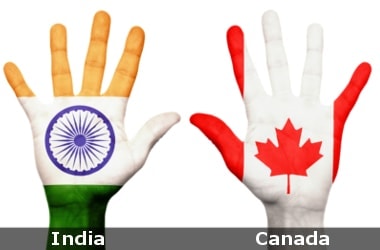 The Union Cabinet chaired by Prime Minister Shri Narendra Modi was informed today that India and Canada have mutually agreed to jointly issue a set of two Commemorative Postage Stamps on India-Canada: Joint Issue on the theme “Diwali”. The Union Cabinet chaired by Prime Minister Shri Narendra Modi was informed today that India and Canada have mutually agreed to jointly issue a set of two Commemorative Postage Stamps on India-Canada: Joint Issue on the theme “Diwali”.
The joint stamps will be released on 21st September, 2017.
A Memorandum of Understanding (MoU) has already been signed between Department of Posts and Canada Post for this joint issue.
India and Canada have a longstanding close relationship, based on shared values of democracy, pluralism, equality for all and rule of law.
Strong people-to-people contacts and the presence of a large Indian Diaspora in Canada provide a strong foundation for the relationship.
In this joint issue, the theme “Diwali” has been selected as it is a cultural theme for both the countries and also considering the large presence of Indian Diaspora in Canada.
|
▼ India-Israel Industrial R&D and Technological Innovation Fund (I4F) approved [08-31-17]
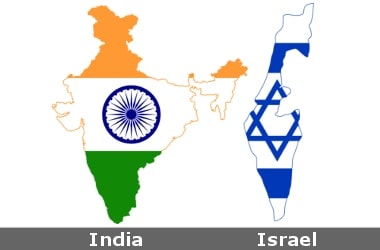 The Union Cabinet chaired by Prime Minister Shri Narendra Modi approved a Memorandum of Understanding (MoU) between India and Israel. The Union Cabinet chaired by Prime Minister Shri Narendra Modi approved a Memorandum of Understanding (MoU) between India and Israel.
This is on “India-Israel Industrial R&D and Technological Innovation Fund (I4F)”.
The MoU was concluded in July, 2017
India and Israel will make a contribution of four million US Dollars each for the Fund, both equivalent amount, annually for five years.
The Innovation Fund will be governed by a joint Board which will consist of four members from each country.
The MoU envisages promotion of bilateral Industrial R&D and Innovation cooperation in the fields of science and technology by extending support to joint projects for innovative or technology-driven new or improved products, services or processes.
Such projects will lead to affordable technological innovations in focus areas of mutual interest such as water, agriculture, energy and digital technologies.
Institutional support in building up consortia including private industry, enterprises and R&D institutions from India and Israel will be enabled through these collaborative projects.
The activities supported by the Joint Fund would increase the techno-economic collaboration between the two countries by investing in jointly developed technology projects and collaborations based on technological innovation.
|
▼ India-Brazil MoU on Zebu Cattle Genomics approved [08-31-17]
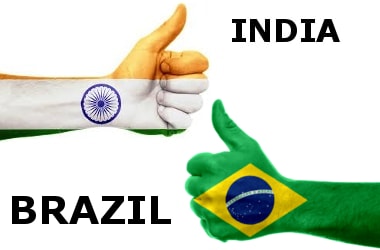 The Union Cabinet chaired by Prime Minister Shri Narendra Modi was apprised of Memorandum of Understanding (MoU) signed between India and Brazil for cooperation in the fields of Zebu Cattle Genomics and Assisted Reproductive Technologies. The Union Cabinet chaired by Prime Minister Shri Narendra Modi was apprised of Memorandum of Understanding (MoU) signed between India and Brazil for cooperation in the fields of Zebu Cattle Genomics and Assisted Reproductive Technologies.
The MoU was signed in October, 2016.
The MoU will strengthen the existing friendly relations between India and Brazil.
It will promote development of Genomics and Assistant Reproductive Technologies (ARTs) in Cattle through joint activities to be implemented through mutually agreed procedures.
An implementation committee shall be created with an equal number of representatives of each party for the purpose of regularly determining the activities.
Also on the anvil are developing work plans and subsequently their evaluation.
It will be done through joint projects in the fields of Productivity Improvement of cattle and buffaloes, for the purpose of broadening the existing knowledge base on sustainable dairy development and institutional strengthening.
The MoU would promote and facilitate scientific cooperation and setting up of genomic selection programme in Zebu Cattle through
a. application of genomic in Zebu Cattle and their crosses and buffaloes
b. application of assisted reproductive technologies (ARTs) in cattle and buffaloes
c. capacity building in genomic and assisted reproductive technology
d. Related research and development in Genomics and ART in accordance with the respective laws and regulations of the two countries and is covered under Rule 7 (d) (i) of the Second Schedule of the Government of India (Transaction of Business) Rules, 1961.
|
▼ INCOIS inaugurates Ocean forecasting system for 3 countries [08-29-17]
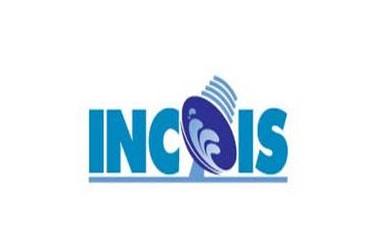 The Indian National Centre for Ocean Information Services (INCOIS) of the Ministry of Earth Sciences here inaugurated the Ocean Forecasting System for Comoros, Madagascar, and Mozambique. The Indian National Centre for Ocean Information Services (INCOIS) of the Ministry of Earth Sciences here inaugurated the Ocean Forecasting System for Comoros, Madagascar, and Mozambique.
This is at the third Ministerial Meeting of Regional Integrated Multi-Hazard Early Warning System for Asia and Africa (RIMES), held at Port Moresby, Papua New Guinea, on 25th Aug 2017.
The ocean forecast and early warming information on high wave, currents, winds, tides, sub-surface ocean conditions cater to users like fishermen, coastal population, tourism sector, coastal defence officials, marine police, port authorities, research institutions and offshore industries of these countries.
These ocean services are aimed towards safety at the sea.
The system would offer oil spill advisory services, high wave alerts, port warnings, forecast along the ship routes in addition to tsunami and storm surge warnings and help in search and rescue operations.
M. Rajeevan, Secretary, Ministry of Earth Sciences, and Chair, RIMES Council, launched the system for operational use.
INCOIS is already providing these operational services to Maldives, Sri Lanka and Seychelles.
|
▼ India to explore polymetallic nodules from Central Indian Ocean Basin [08-23-17]
 India’s exclusive rights to explore polymetallic nodules from seabed in Central Indian Ocean Basin (CIOB) have been extended by five years. India’s exclusive rights to explore polymetallic nodules from seabed in Central Indian Ocean Basin (CIOB) have been extended by five years.
These rights are over 75000 sq. km of area in international waters allocated by International Seabed Authority for developmental activities for polymetallic nodules.
The estimated polymetallic nodule resource potential is 380 million tonnes, containing 4.7 million tonnes of nickel.
They also contain 4.29 million tonnes of copper and 0.55 million tonnes of cobalt and 92.59 million tonnes of manganese.
This has been approved unanimously in the 23rd session of International Seabed Authority (ISA) concluded on August 18, 2017 at Kingston, Jamaica.
India is the first country to have received the status of a pioneer investor in 1987.
It was allocated an exclusive area in Central Indian Ocean Basin by United Nations (UN) for exploration and utilization of nodules.
India is one among the top 8-countries/ contractors and is implementing a long-term programme on exploration and utilization of Polymetallic Nodules through Ministry of Earth Sciences.India’s
This includes survey and exploration, environmental studies, technology development in mining and extractive metallurgy, in which significant contributions have been made.
While, the extraction of metals from the polymetallic nodules lying at the deep ocean floor is not yet found to be economically viable at this stage.
This is an area of about 7860 square km has been identified in the CIOB for the First Generation Mine Site on the basis of detailed surveys and analysis.
Environmental studies for mining of deep-sea polymetallic nodules were also carried out to evaluate the possible impacts of mining on deep-sea environment.
A Remotely Operable Submersible (ROSUB 6000), capable of operating at 6000 m water depth was also developed and tested successfully at a depth of 5289 m.
A remotely operable in-situ soil testing equipment was also developed for obtaining detailed geotechnical properties of the mining area at CIOB and tested successfully at 5462 m water depth.
A mining system is under development which has been tested for 500m water depth.
Metallurgical process routes for extracting copper, nickel and cobalt from polymetallic nodules have been developed and tested in a demonstration pilot plant.
This was set up on semi-continuous basis at Hindustan Zinc Limited, Udaipur with a capacity to process 500 kg nodules per day.
ISA: Know More
- International Seabed Authority (ISA) is a UN body set up to regulate the exploration and exploitation of marine non-living resources of oceans in international waters.
- India actively contributes to the work of International Seabed Authority. Last year, India was re-elected as a member of Council of ISA.
- India’s nominees on Legal and Technical Commission and Finance Committee of the ISA were also elected last year.
|
▼ India, Russia to hold Tri-Service Indra Combat Exercise [08-16-17]
The exercise Indra, which will be held in Russia from October 19 to 29, will primarily focus on achieving coordination between forces of the two countries in a tri- services integrated theatre command scenario.
In the midst of evolving security situation in the region, India and Russia will hold a mega war game in October involving their armies, navies and the air forces for the first time to further ramp up military ties.
It will be for the first time India will participate in a tri-services exercise with a foreign country with such a large scale participation by the Navy, the Army and the Air Force.
A total of 350 Indian Army personnel will participate at the mega exercise and the contingent will be led by a major- general rank official.
The contingents by the Navy and the IAF will also be sizeable in numbers.
The exercise is taking place at a time when India's ties with China have nosedived due to the simmering border dispute and its ties with Pakistan have deteriorated over cross-border terrorism and number of other issues.
The exercise will take place in three locations in Russia including in mountainous Vladivostok region.
The armies, navies and air forces of Russia are holding bilateral exercises separately but this is for the first time, both the countries will carry out a tri-services exercise.
Russia has been a long-standing defence partner of India and both the countries are now eyeing to further deepen the ties.
During Prime Minister Narendra Modi's visit to Russia in June, both countries had decided to "upgrade and intensify" defence cooperation through joint manufacture, co-production and co-development of key military hardware and equipment.
A vision document, issued then had said that both the countries also decided to work towards a qualitatively higher level of military-to-military cooperation.
India has already decided to significantly ramp up its defence capability and has lined up billions of dollars of procurement proposals as part of military modernisation.
The armies, navies and air forces of Russia are holding bilateral exercises separately but this is for the first time, both the countries will carry out a tri-services exercise.
|
▼ India gets first private sector missile subsystems manufacturing facility [08-4-17]
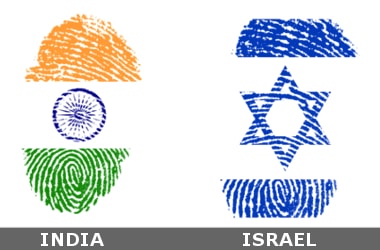 India’s first private sector missile sub-systems manufacturing facility, a joint venture between the $2.5 billion Kalyani Group and Israel’s Rafael Advanced Defence Systems Ltd., was inaugurated near Hyderabad on Aug 3. India’s first private sector missile sub-systems manufacturing facility, a joint venture between the $2.5 billion Kalyani Group and Israel’s Rafael Advanced Defence Systems Ltd., was inaugurated near Hyderabad on Aug 3.
To begin with, the Kalyani Rafael Advanced Systems (KRAS) plant will make anti-tank guided missile (ATGM) Spike and the production is expected to begin in a few weeks,
Formed in line with the ‘Make in India’ initiative of the Centre and the policy to encourage private sector participation in defence production, the 51:49 joint venture will develop a wide range of advanced capabilities.
These include command control and guidance, electro-optics, remote weapon systems, precision guided munitions and system engineering for system integration. The plant would employ more than 300 engineers and provide indirect employment to 1,000 people.
The localisation content is 90% and most of the vendors are in and around Hyderabad.
KRAS, which aims to be a one-stop solution provider to locally re-design, develop, re-engineer and manufacture various land and airborne products and systems in India, has plans for expansion.
|